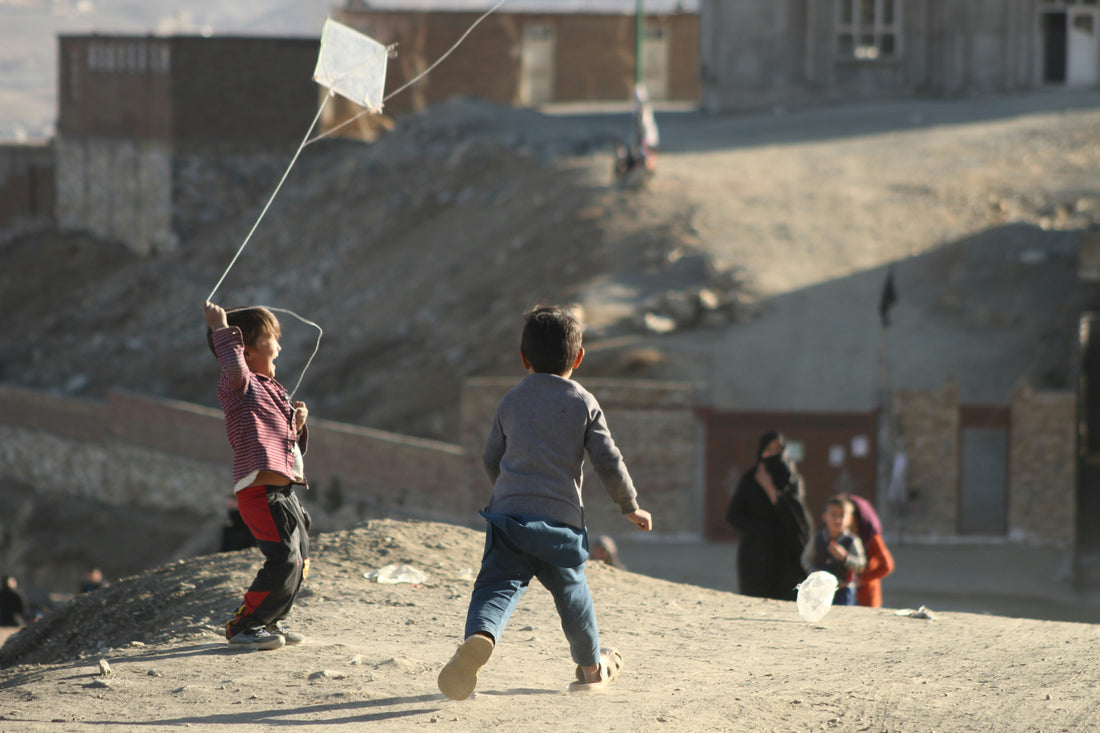
Empowering Local Communities: How Ethical Gemstone Trade Supports Afghanistan’s Future
Share
At the heart of the gemstone industry lies not just beauty and craftsmanship, but also responsibility. Ethical sourcing goes beyond providing high-quality gemstones - it supports local communities, preserves cultural traditions, and ensures that economic benefits reach the right hands. In Afghanistan, where gemstone mining has a long-standing history, responsible trade plays a crucial role in fostering stability and growth.
Investing in Local Communities
The gemstone trade has the potential to uplift entire communities by creating employment opportunities, ensuring fair wages, and reinvesting in local infrastructure. Ethical sourcing ensures that Afghan miners and their families benefit directly from their work, rather than intermediaries or external entities profiting at their expense.
Fair Trade Practices: Supporting fair compensation for miners leads to improved living conditions and economic empowerment.
Education and Infrastructure: A portion of revenue from ethically sourced gemstones is channeled into building schools, healthcare centers, and roadways to improve community welfare.
Skill Development: Investing in training for miners and artisans helps maintain the region’s traditional craftsmanship while improving safety and efficiency in mining practices.
For more insights into how ethical sourcing benefits mining communities, visit The World Bank and Global Witness.
Preserving and Promoting Local Culture
Afghanistan has a rich cultural history, with gemstone artistry passed down through generations. Ethical trading supports these traditions by promoting locally crafted gemstones and jewelry, ensuring that cultural heritage remains intact.
Traditional Craftsmanship: Encouraging the continuation of ancient lapidary skills keeps Afghan heritage alive.
Global Recognition: Ethical sourcing brings international appreciation and demand for Afghan gemstones, positioning the country’s artisans on the global stage.
Empowering Artisans: By investing in workshops and training programs, gemstone trading provides artisans with the resources to grow and innovate.
Learn more about preserving cultural heritage in gemstone-producing regions at UNESCO and The Cultural Survival Organization.
Commitment to Ethical Trade: No Deals with Radicals
Operating in regions affected by conflict presents challenges, but ethical businesses ensure that no funding or resources fall into the hands of extremist groups. Responsible traders work exclusively with verified mining operations and legal supply chains to prevent gemstones from financing instability.
Strict Compliance with International Regulations: Ethical traders adhere to international laws that prevent conflict financing and illicit trade.
Transparency in Sourcing: Ensuring all gemstones have a traceable and legitimate origin eliminates the risk of funds being misused
Partnerships with Verified Miners: Supporting only those who engage in legal and responsible mining practices guarantees that profits benefit local communities rather than radical groups.
For more information on responsible trade practices, visit OECD Due Diligence for Responsible Supply Chains and The Kimberley Process.
Ethical gemstone trade is more than just an industry—it is a commitment to positive change. By supporting fair trade, reinvesting in local communities, preserving culture, and ensuring transparency, responsible sourcing is shaping a brighter future for Afghanistan. Through strict ethical guidelines and a dedication to empowerment, businesses operating in the region can contribute to sustainable development while ensuring that every gemstone tells a story of resilience and integrity.
For further insights on the role of ethical trade in gemstone industries, explore trusted sources like Human Rights Watch and The Responsible Jewellery Council.



